Latest questions:
Trending questions:
Hot questions:
How technology will impact aging population in the future?
Indeed smart home will support, different devices can take care of what people can no longer do or perform with difficulties. It helps to be independent.
Healthcare robot to identify changes in people behaviors and expressions.
Use predictive model to understand when people could need assistance as they are at risk.
Virtual care. Contact doctor through video calls and take the advantage of technology such as face scanning.
Virtual wallet to protect from fraud.
Keep people as part of a community, no matter if virtual.
23 answers
Our current and future aging populations will benefit from the evolution of such home and like intgrated services such as Alexa and Google Home that have abilities not yet fully harnessed. Home and health monitoring, reminders for appointments and medications will become commonplace as the programmability of those systems eters a simplified stage where selection of options will solve many of the features ease of use obstacles are overcome.
Aging populations are more tech savvy, willing to learn beyond the capabilities of their phone to include features found with Alexa and others. They value connectivity including video chat, social media and voice conference calling and value systems for security, as much as their ability to easily communicate with products and services that they need.
The new Aps to check blood glucose levels for an elederly diabetics and blood pressure fluctuations . These Aps can be connected to the cell phones, so they monitor the day to day and even hour to hour changes of the blood sugar and blood pressure for the diabetics or hypertensive elderly.
Often it can be observed that elderly people become again like children (there is even a classic Star Trek-episode dedicated to this). An aging population is already a real scenario in Japan, so that new developments are already implemented, for example Toyota's Kirobo Mini, a “compact and cuddle-some” mini robot with the following functions:
- More than just passively answering to the users questions, the device defines itself as casual interlocutor, including to respond to emotions.
- The integrated AI learns the user’s preferences and can use this information for predictions.
- With a size of only 10cm, it is transportable and due to this, not only can act as the brain on the house, but also connect to the smart car.
- With these abilities Kirobo’s AI connects direct information from the user with smart data receiving from the house and vehicle. The robot is the face to control the complex structures.[1]
With this, Kirobo is not only a robot, but at the same time, an AI interface to the smart home.
Somehow I have the hope that over the next few years I will be able to connect my body through wearable sensors to my home security and smart home technologies easily. I wear a fitness and heart monitor that measures sleep function, an electro-stimulation device to control nausea and vertigo, and would wear more if they were integrated with my oxygenation sensor, diabetic glucose monitor, temperature, abnormal motion monitor, emergency call button coordinating all of the sensors to determine if medical assistance would be needed, all interfaced through my phone and communication with Alexa like natural language system to handle requests and manage appointments and calls to a directory of friends and family members and support people. I find the future within reach and doable. After all my home automation Is proving control, safety, security, and let's me order groceries and pizza on demand, while reminding me to exercise frequently in and outside of the home.
From the health care point of view, improvement of technology does signify that better executed procedured based treatment techniques (ie robotic surgery with minimal invasive and precise incision therefore less complication rate), better diagnosis where advance technology aid to detect certain disease in a earlier stage so that treatment could be initiated early and hence nip the problem before it snowball into bigger issue. Advance in technology could also helps to breaks the communication barrier between doctor and patients. All this could means that human life span could increase. For example during the 80's the average life span is 60-70 year old but in 2019, the average life span is 70-80. However, better technology does not confer to better health care. For example if advance health care technology treatment price is too expensive and the elderly might not be able to pay for it, This defeat the purpose of high tech health care for the aging population.
GOALS
We all want to live a long healthy life: ‘long’ as in longevity and we’ve done well there, adding 25 years to the lifespan in the past century; ‘healthy’ is where we have uneven results, that is the healthspan.
From a societal perspective, we need to better engage older individuals, providing them with opportunities to maintain a sense of purpose, social connections and increased physical activity. Technology can help with all of these.
For individuals, the decisions we make that lead to a shortened healthspan are a combination of data and emotions. Technology can help us with the data part of the equation.
Care-giving is in need of an overhaul, going from our current one-to-one model to a one-to-many model. Technology (robotics, artificial intelligence and other digital and emerging technologies) is critical.

65 months ago
Technology will improve the aging population in several ways. Few areas -
Smart Home and Home Appliances.
We have seen how smart home devices which are controlled by assistants like Google Home and Alexa are helping people of all ages. Wireless devices with gesture and voice controls are definitely a plus.
Smart Healthcare
Though still a lot to be done in this area but compact and hussel free digital devices for basic medical facilities are definitely a boon.
Smart Automobiles
Driverless cars are definitely helpful for aging people and the time is not so far.
Since health science is improving every day, the average human life span increases too. Hence there might be a possibility to redefine the aging population (for example aging population limit might means >65 but in the future it might be > 90) Thus, the need would be different! Hence there might be a change in the technology design for different age group as the need might be different. For example the need for a 90 year old might be different from one that is 65 year old! What do you think?
I fully recognize the import of this question. However, I would be remiss not to interject there are digital healthcare solutions that should precede facial imaging predictive modeling. That to which I am referring is digital healthcare exams. Long before the body expresses pain and/or potential chronic or fatal diseases there exists today technology, which will enable medical providers to see and manage changes in bodily organs. The cost benefits are potentially remarkable. That said, predictive modeling that anticipate healthcare need has its place within healthcare
I would like to think that there will be a convergence of home automation control and health monitoring to make safer the home environment for seniors. I believe a lot more bio monitoring sensors will come on line, interact with the occupant, and interact with healthcare provider systems able to initiateactikns as needed. Alexa and Google Home can remind patients of appointments, medications, family events and contacts, all the while monitoring actively a patient's heart rate and pressure, diabetes regulation, hydration, oxygenation, temperature, and mobility status whether the occupant has fallen correlated with vital signs. One integrated system capable of handling security, payment statuses, contacts with friends and family, control the multimedia in the house and messaging. That's is for starters, and I believe the quality of life will be improved and forestall the need for disruptive moving to assisted living care, instead coordinate with care providers the needs and wishes for the patient and in concert with the family desires. All is pretty much doable now, and would likely reduce the costs of elderly health and home care.
The actual generation of elderly people grow up with technology. This means that they are used to hard- and software and are able to use computers, smart phones, tablets, streaming services, etc. Furthermore, this contact with communication technology may avoid Alzheimer, so they may stayer longer on a high mental level.
Of course the contact with humans; family and healthcare practitioners stays imperative. But in addition to this, they accept to receive treatments by AI, including robots.
Small smart robots are autonomously helping around the house, including vacuum-cleaning, cut grass, etc. Some of them scan the house or department, this to learn corners and where furniture is. This can go further, as an AI may suggest new furniture or sell this information to potential vendors. https://www.nytimes.com/2017/07/25/technology/roomba-irobot-data-privacy.html
Longer lifespans require a longer work-life. This not for cost reasons, but also that the individuals keep a self-perceived purpose. It can be reached by reduced and flexible working hours and home office, but also hardware like Exoskeletons, which help to reduce physical fatigue and analyze when the employee gets mentally tired.
Good news: far fewer Americans are dying of cancer
The bad news: your odds of surviving are a lot better if you’re rich.

64 months ago
GADGETS and HEALTH CARE OUTCOMES
There are a lot of companies trying to commercialize all kinds of new devices and services based on new sensor technology and data interpretation dependent on artificial intelligence; early adopters (consumers) are buying and using them, often without medical advice; and traditional healthcare providers are ill-prepared to incorporate this technology into their practice, or to respond to patient-generated data and clinical insights.
I think this all raises a lot of important questions. Here are just a few, according to my colleague Ira Nash MD:
- How good is “good enough” when evaluating whether a particular device or technology should be used clinically?
- What is the role of physicians in interpreting patient generated data or machine generated diagnoses?
- What are the appropriate standards and enforcement mechanisms to assure data security and privacy?
- Which of these new devices or services actually improve health?
Any thoughts?

64 months ago
As discussed in here, access to information does not lead to change of behavior, especially not related to personal health: https://www.bloomberg.com/news/articles/2018-09-05/these-are-the-world-s-most-inactive-nations
FIRST: GOOGLE aggregated the entire corpus of the published human kind knowledge-base; so don’t’ blame ills today on lack of education; maybe access in the under developed world - but not on the domestic fat topic, or other moral hazards. PLEASE!

64 months ago
GADGETS WONT REDUCE HUMAN frailities
All the previously mentioned tech is not useful for daily medical care; at all. They have been used in telemetry units for decades. And, just because patients can now obtain [almost] same because of reduced size and cost, legal, competitive and political fiat precludes use as the discourse circles aimlessly and meanders.
PS: To the bloke who said it was too difficult to walk, eat less and reduce moral hazards; he/she may indeed get the health deserved; despite all the gadgets that will never replace common sense.

64 months ago
Gadgets can support to overcome limitations. Depending the case, implements can correct colorblindness. New ExoSkeletons may replace classic wheel-chairs, and so offer the individual a higher quality of life.
Technology will enable people to receive earlier and better diagnoses, get faster (and more) second opinions, get more targeted, less harmful treatments at the beginning of their illness, rather than through trial and error, allow people to better care for themselves and monitor their own health. It will enable people to stay in their homes longer and live independently rather than move to nursing homes, which will reduce their health care costs.
Ultimately, all the data collected--if properly harnessed--can tell us a lot about illness and health, and help us live better, longer.
Technology will definitely impact in a positive way. New AI home environments, virtual and augmented reality and physical and product design for an aging population will increase mental and physical health, familiar and friends relationships. I visualize a great future in terms of technology, product and services development as designer, In places like Brazil is a movement getting stronger everyday, not like North America, however, there is some startups and products for senior users in the market, Very few yet, but it will grow.
I highly recommend my design research portal with the Universal Design page where you can find more resources and expertise: https://designresearchportal.wordpress.com/universal-design/
Today, we see Artificial intelligence in hospitals helping clinicians identify medical risks; predict when to provide targeted, life-saving interventions; form treatment plans for patients with rare diseases; and deliver precision medicine. Voice activated personal assistants could also be created to aid the elderly ones. Voice-activated personal assistants could help old people with the safety, security and social connections needed for healthy living. People with limited mobility or impaired vision could also rely on voice-activated personal assistants to control lighting, read audiobooks or provide medication reminders. AI technologies could also help older adults with early stage dementia by answering questions or playing familiar music, which can help cognitive and emotional well-being. Current and future AI technologies hold the promise to support older adults and improve aging, but to be fully effective they need to be easy to use, safe and affordable. Artificial intelligence could help older adults by supporting wellness and social engagement to help them age optimally.













